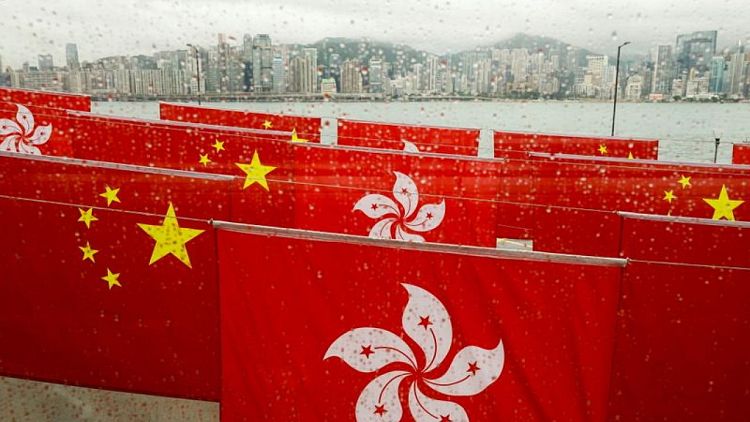HONG KONG - China's top legislature has postponed a vote on extending an anti-sanctions law to Hong Kong, the South China Morning Post said on Friday, as global banks and other financial institutions fret over the impact it could have on their operations.
Beijing was expected to formally approve the law for the Chinese-ruled city on Friday to counter actions by foreign governments amid escalating geopolitical tensions.
The central government "hopes to listen to further views on the matter," the newspaper cited a mainland source as saying.
Financial firms have been closely watching a meeting this week of the National People's Congress Standing Committee, the highest body of China's parliament, for signs on how and when the legislation will be introduced in Hong Kong.
Beijing introduced the law in mainland China in June under which individuals or entities involved in making or implementing discriminatory measures against Chinese citizens or entities could be put on a mainland anti-sanctions list.
Under China's law, such individuals could then be denied entry into China or be expelled. Their assets in China may be seized or frozen. They could also be restricted from doing business with entities or people in China.
The mainland law followed a series of sanctions by the United States on dozens of Hong Kong and mainland Chinese officials involved with a national security law Washington says is being used to crush dissent in the city, which Beijing denies.
A deputy director of the State Council's Hong Kong and Macau Affairs Office, Huang Liuquan, was expected to provide some clarity to Hong Kong officials when he visits the city next week, the South China Morning Post said earlier on Friday.
Hong Kong leader Carrie Lam said on Tuesday she did not have an explicit timetable for the law's implementation.
